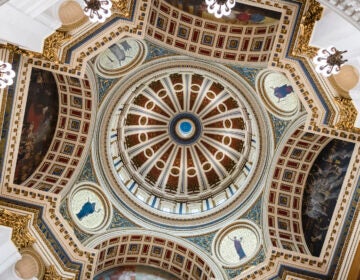Villanova Law School put on 2-year probation by Association of American Law Schools
I take no pleasure in reporting this news about a local law school.
Villanova Law School admitted in 2011 that under its previous dean it had intentionally submitted false data to the American Bar Association (ABA) regarding the grades and Law School Admissions Test scores of its incoming classes. This revelation resulted in censure of Villanova Law School by the American Bar Association. Now another regulatory body has weighed in on the Villanova Law School scandal.
In a public letter dated November 28, 2012, addressed to the President of Villanova University and the Dean of the Villanova Law School, the Association of American Law Schools (AALS), a voluntary association of member law schools, announced that it was placing Villanova Law School on probation for two years, commencing when the school posts the letter on its website. The American Bar Association had also required Villanova Law School to prominently post a copy of the ABA censure on the law school website. Villanova Law School’s home page now has links at the bottom of the page to the ABA and AALS letters of reprimand.
The AALS explained its delay in responding to the scandal by noting, “The AALS had no precedent for responding to conduct of this kind by a member school.” It said that, “the serious nature of the unethical behavior, and the continuing nature of the harm done, calls for a strong response on the part of this Association.” It found that, “The Law School’s intentional submission of false data over a period of several years… constitutes ‘a material failure to comply with the requirements of (AALS) membership,’ warranting sanctions.”
In other writing I have tried to make the connection between this particular scandal and the larger crisis in American legal education resulting from too many law schools, having to charge higher tuition to stay competitive, competing for too few tuition-paying law students, many of whom incur enormous student loan debt, only to find fewer and more limited job opportunities after graduation than they expected.
I think it’s entirely fair for Villanova Law School’s students, faculty and alumni to wonder in the midst of this legal education crisis, if, and how many, other American law schools may have done the same thing as Villanova, in an effort to market themselves to tuition-paying students, but not admitted it as Villanova has done.
WHYY is your source for fact-based, in-depth journalism and information. As a nonprofit organization, we rely on financial support from readers like you. Please give today.




